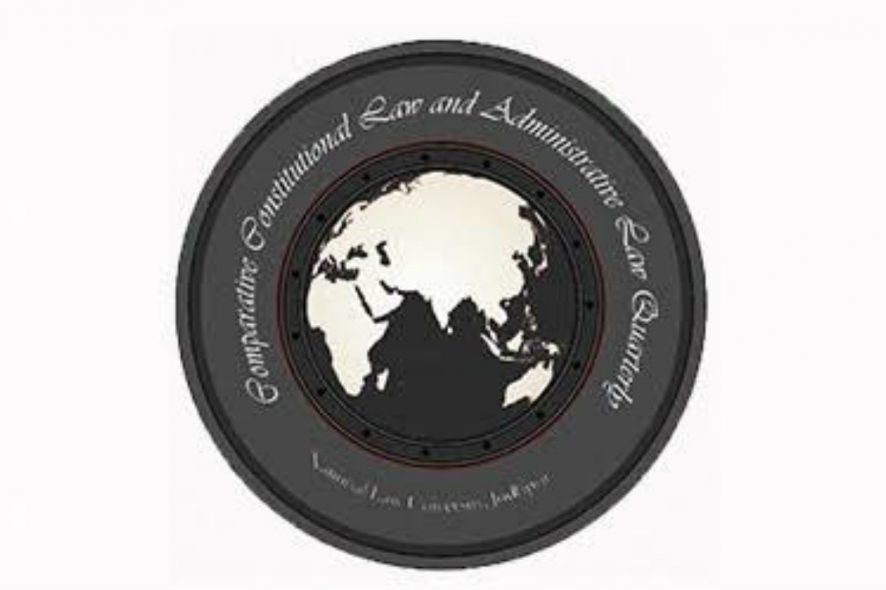About: The Comparative Constitutional Law and Administrative Law Quarterly is an open-access online journal initiated at National Law University, Jodhpur, aiming to foster debate on contemporary issues in comparative constitutional law and administrative law, with a comparative perspective. The first issue of CALQ was published in 2013.
Any debate on the constitutional and administrative law would typically involve aspects of law, politics as well as philosophy. It is this that makes this sphere of law so fascinating, along with the fact that it has the ability to influence the lives of people from all sections of society, in a way few others can. Thus, it is not altogether uncommon to find people who are not necessarily lawyers or policymakers debating a constitutional law topic over a newspaper and a cup of tea, sometimes without even realizing that they are doing so! Constitutions decide how our leaders must conduct themselves and how they can act in the discharge of their functions. Besides this, how much privacy we are entitled to in our daily lives, to what extent we can express what we want to, even who we can marry, are all at their core, constitutional law questions.
It is thus that our journal aims to provide a space where scholars, students as well as legal practitioners can share opinions on constitutional and administrative law themes. We also attempt to share discussions from countries that are not traditionally English speaking, in the English language, so that readers of the journal can benefit from diverse views. This includes developing countries like our own, where there is a need to promote research and writing so as to be better represented in academic discourse. We are now accepting submissions for Volume 4, Issue 3.
General Guidelines: The Journal attempts to initiate and foster academic dialogue concerning the subject of Administrative Law and Constitutional Law keeping in mind a global perspective.
All submitted manuscripts shall be original. Any form of plagiarism would lead to immediate rejection of the submission.
Submitted manuscripts should not have been published previously.
Once a manuscript has been selected for publication or has been published in the Journal, the author(s) must seek permission from the Editorial Board before publishing it elsewhere.
Such permission may or may not be granted at the discretion of the Editorial Board.
The author(s) must inform the Editorial Board if the manuscript has also been submitted to another journal, website or forum. The Editorial Board must be notified immediately if an offer for publication from another journal, website or forum is accepted by the author(s).
Solicited submissions are guaranteed a right of publication in the Journal subject to quality and content review by the Editorial Board.
In relation to all disputes, the decision of the Editor-in-Chief shall be final.
Specific Guidelines
2.1. Author(s)
1. Each manuscript may have up to two authors.
2. In case of joint authorship, the author from whom a submission is solicited by the Editorial Board shall intimate the Board of the name, credentials and contact details of the intended co-author.
2.2. Citations and References
1. All relevant sources shall be duly acknowledged as footnotes.
2. The text and citation styles shall conform to the rules prescribed in The Bluebook: A Uniform System of Citation (20th Edition).
2.3. Manuscripts
1. Abstract: The manuscript must be accompanied with an abstract of not more than 350 words.
2. Word Limit: Please note that the word limit would be considered excluding the footnotes, except in cases where speaking footnotes are used.
Articles – Not exceeding 6000 (six thousand) words
Notes – Not exceeding 4000 (four thousand) words.
Case Comment – Not exceeding 3000 (three thousand) words.
3. Citations: Citations shall be made in consonance with The Bluebook: A Uniform System of Citation (20th Edition).
4. Formatting specifications: The manuscript must be in Times New Roman, Font Size 12 with 1.5 Line Spacing.
5. Language: The Journal shall follow British English. While authors are required to adhere to the prescribed word limits, departures from the same will be considered on a case-by-case basis.
6. Last date for submission: 11:59 p.m. on 5th September, 2018.
Submission Procedure
1. The Author/s are required to email the manuscript to editorcalq@gmail.com
2. The manuscript may be mailed in ‘.doc’ or ‘.docx’ format.
3. The subject of the mail must clearly mention, for e.g. ‘Submission for CALQ_Volume 4.3’.
4. The mail must be addressed to the ‘Board of Editors’ providing the name of the author/s with the name of the institution affiliated to and the contact details in the body of the mail.
5. A mail confirming the receipt of the manuscript and subsequently its acceptance for publication would be duly conveyed to the author/s through the email id used by the author/s for correspondence.
6. The Journal also accepts submissions on a rolling basis.
Editorial Policy
1. Authors shall be informed of the status of their manuscripts as it passes through each stage of review.
2. The Journal follows a comprehensive double-blind review procedure.
3. The Editorial Board retains complete discretion over the acceptance/rejection of manuscripts. Reasons for rejection will be provided by the Editorial Board if requested by the author(s).
4. The Journal reserves the right to request copies of any resources or authorities cited in the manuscript.
Copyright Notice
Upon offer of publication of a manuscript by the Journal, authors shall communicate to the Editorial Board their acceptance of the following terms and conditions:
1. The work shall become the property of the Journal.
2. Permission for subsequent publication and/or creating derivative works must be obtained from the Editorial Board.
Contact
All correspondence must be via e-mail, and should be addressed to the Managing Editor at editorcalq@gmail.com.
For more information visit www.calq.in







